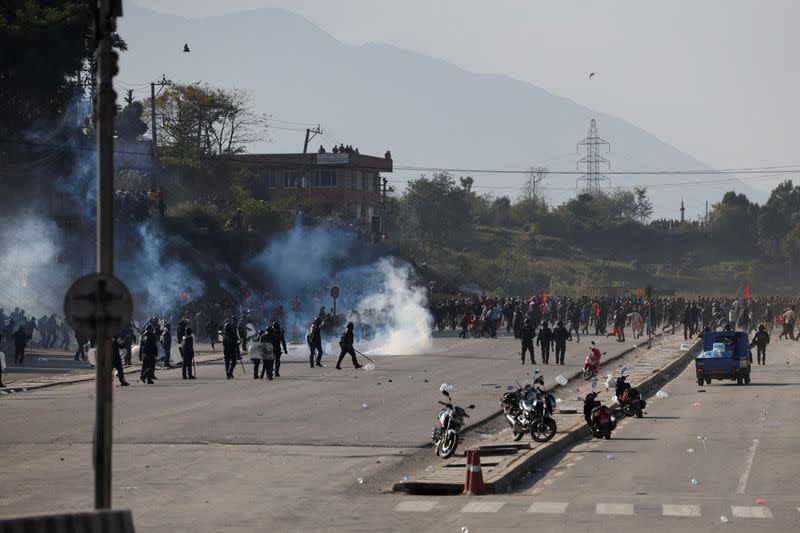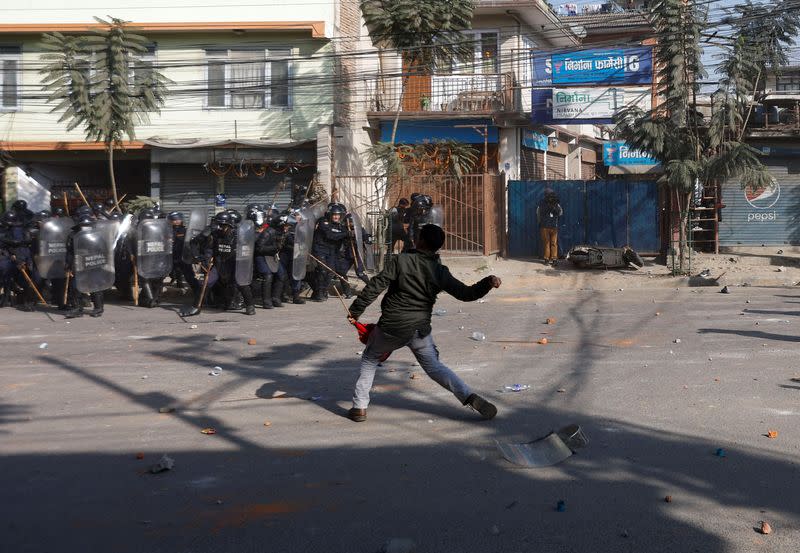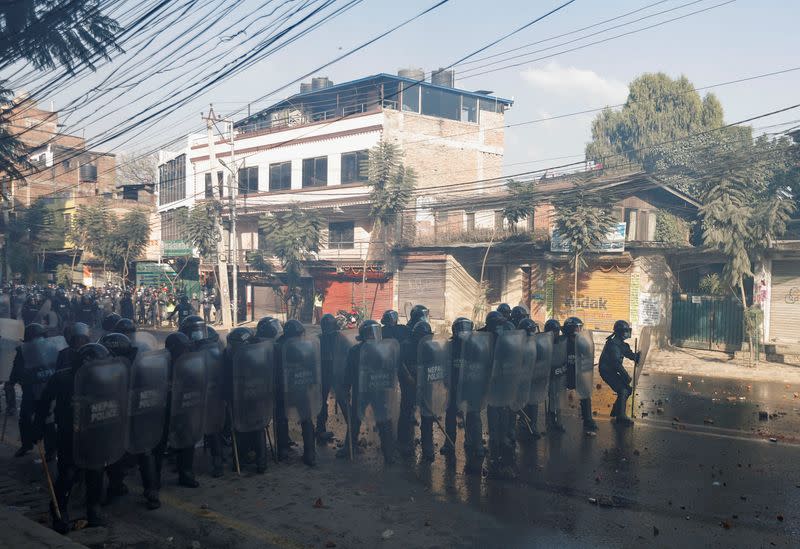Nepal riot police rout protesters seeking restoration of monarchy
By Gopal Sharma
KATHMANDU (Reuters) - Police in Nepal on Thursday used rattan sticks, tear gas and water cannon to scatter thousands of protesters demanding the restoration of the monarchy abolished 15 years ago.
The "Citizens' Campaign" protesters say governments in place since the monarchy was scrapped, as part of a deal ending a Maoist insurgency, have failed to live up to commitments to develop one of the world’s poorest countries.
Protesters tried to dismantle a police barricade on the outskirts of Kathmandu and march into the centre of the capital, prompting riot police to intervene and repel the crowd, witnesses said.
"Police only tried to contain a huge anarchic crowd of protesters," said Jitendra Basnet, the top official in the city administration of Kathmandu, in whose downtown area public protests are banned.
Some police officers were injured by stones thrown by protesters, said Basnet.
Durga Prasai, coordinator of the Citizens’ Campaign, said about 10 protesters were injured in the melee, two of them critically.
"We want the republican system abolished and the monarchy to be restored," he said, vowing to continue agitating for that objective and calling for a general strike in Kathmandu, home to about four million people, on Friday.
A specially elected assembly abolished the 239-year-old monarchy in 2008 under terms of an accord that ended a Maoist insurgency, which killed 17,000 people between 1996 and 2006, and established a federal republic.
But political instability has afflicted Nepal since the end of the monarchy with over 10 changes of government, hobbling economic development and forcing millions of young people to seek work mainly in Malaysia, South Korea and the Middle East.
Former Maoist rebel chief Pushpa Kamal Dahal, who still goes by his nom de guerre of Prachanda ("Fierce"), is now Nepal's prime minister heading a coalition with the centrist Nepali Congress party.
Gyanendra, the last king of the Himalayan mountain country wedged between India and China, lives as a commoner with his family in Kathmandu.
(Reporting by Gopal Sharma; editing by Mark Heinrich)






